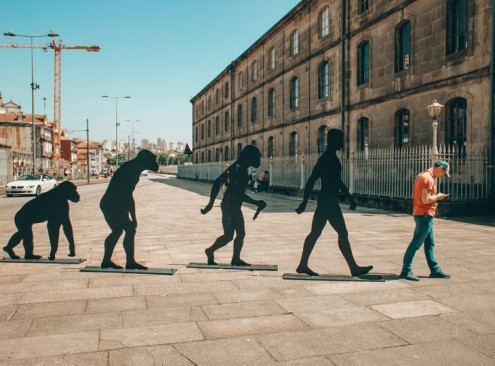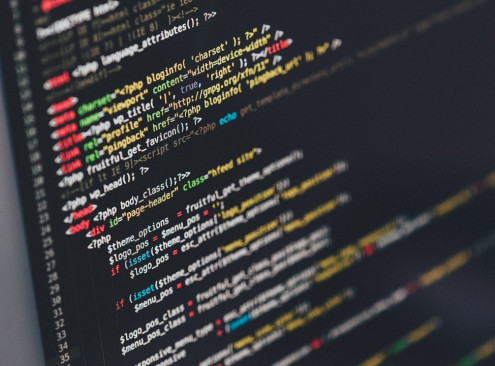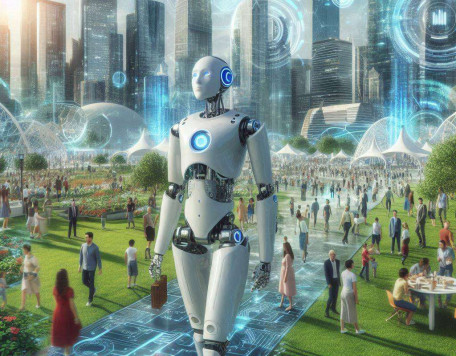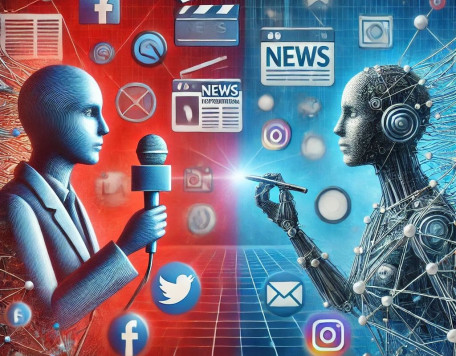© Pint of Science, 2025. All rights reserved.
In this session, you will hear about the intersection of computer science and evolutionary theory, learn how ChatGPT actually works, and gain a fresh understanding of how the physical and informational worlds both impact your life. This session is about you and about how a technological perspective shapes your view on life, the nature of intelligence, and your own body.
A Reason to Be: The science of life, mind and evolution upturned
Professor Richard Watson (Professor of Computer Science)
(Richard is a professor of evolutionary theory and AI at the University of Southampton, UK. His research expertise links evolutionary biology and computer science with a desire for personal and societal well-being. He investigates big questions about life, learning, evolution, cognition and love. Richard bridges both the biological and computational worlds in a manner that is grounded and practical whilst also exploring broad societal questions such as what it means to be an individual, and how societies can)
No scientific idea has had a greater impact on our understanding of life and our place in the natural world than Darwin's theory of evolution by natural selection. This provided the foundation for a narrative of living things as a kind of bio-molecular machine built by and for their genes, with no raison d'etre, no reason to be, besides self-preservation. Recently, it has become clear that all life is considerably smarter than we realised. All living things have some ability to store and recall information or behaviours, learn from experience, and problem-solve quickly. This suggests a new view of life, where natural intelligence leads evolutionary change and natural selection follows. This inverts the conventional scientific narrative and has big implications for our personal and sociopolitical values and models of ‘progress’.

But how does ChatGPT actually work?
William Hunt (PhD student in Computer Sciences)
(Will is a PhD Student at the University of Southampton researching the intersection of Large Language Models and robotics. He has authored multiple papers investigating and deploying language models in robot contexts and is actively pursuing this research direction. He is also part of the Flare-X team, building command and control software for swarms of aerial drones in firefighting applications, and has a background in human-swarm teaming as well as multi-robot simulation software.)
With the advent and widespread adoption of new text-based AI systems, Large Language Models (LLMs) like ChatGPT forebode an unpredictable future. It is more important and difficult than ever to understand what is really happening “under the hood” of these systems. Many explanations either overly anthropomorphise a set of equations, or blind one with more maths than even the most seasoned computer scientist can understand. This talk will simply explain the core principles of how these models actually work, how they are trained, and how they seem to know everything. It simply touches on questions like “Does ChatGPT actually understand what it is saying?”.

Stress: it’s not your fault; it’s physical.
Professor m.c. Schraefel (Professor of Computer Science)
(m.c. schraefel is a professor of computer science and human performance. She runs the WellthLab.ac.uk for healthful interactive technology design and engineering at the University of Southampton, where the mission is to help #makeNormalBetter for all, at scale. m.c. believes in the healing power of pull ups.)
Stress is normal. In fact, it’s an essential part of everything we ever want to get better at. Every time we exercise, our heart rate goes up, and when we are nervous, we also breathe harder - these are stress signals. When a deadline is coming up, focus narrows, and that stress is also a very physical signal about our current state. And that state is fundamentally about three things: 1) how our body is managing energy, 2) how it supports adaptation to a particular context (whether that’s a physical, mental, or emotional space) and 3) how it keeps us from blowing up.
Once we have a handle on how this signal works, and what it’s trying to tell us in these different contexts, we have some immediate and also very physical actions we can take to mitigate stress going from acute (short totally necessary bursts of goodness) to chronic (longer lasting sleep wrecking and relationship disrupting) bouts of harmfulness to our health. You will leave this Pint of Science talk with tools you can use immediately to use stress for positive adaptation, resilience and longevity. Promise!
Once we have a handle on how this signal works, and what it’s trying to tell us in these different contexts, we have some immediate and also very physical actions we can take to mitigate stress going from acute (short totally necessary bursts of goodness) to chronic (longer lasting sleep wrecking and relationship disrupting) bouts of harmfulness to our health. You will leave this Pint of Science talk with tools you can use immediately to use stress for positive adaptation, resilience and longevity. Promise!

Map data © OpenStreetMap contributors.
Other The Brewhouse & Kitchen events
2025-05-21
Cats, Robots, and Deepfakes: Lets talk about AI
The Brewhouse & Kitchen
47 Highfield Ln, Southampton, SO17 1QD, United Kingdom
2025-05-20
AI: The good, the bad, and the life saving
The Brewhouse & Kitchen
47 Highfield Ln, Southampton, SO17 1QD, United Kingdom



